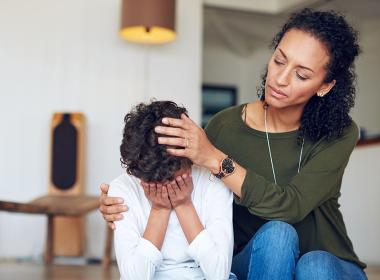Lots of kids need help right now, but don’t know how to ask. Our pediatric experts share ways to support your child’s mental and emotional well-being every single day – from what to do when they’re struggling to how to build positive habits for a lifetime.
For support navigating mental health resources, contact Connecticut Children’s Center for Care Coordination at 860.837.6200.
If you feel your child is in crisis, or a danger to themselves or others, call 911. In Connecticut, you can also call 211 for emergency or crisis intervention. For free, confidential support from the National Suicide Prevention Life Line, call 1.800.273.8255 or text “HOME” to 741741.












